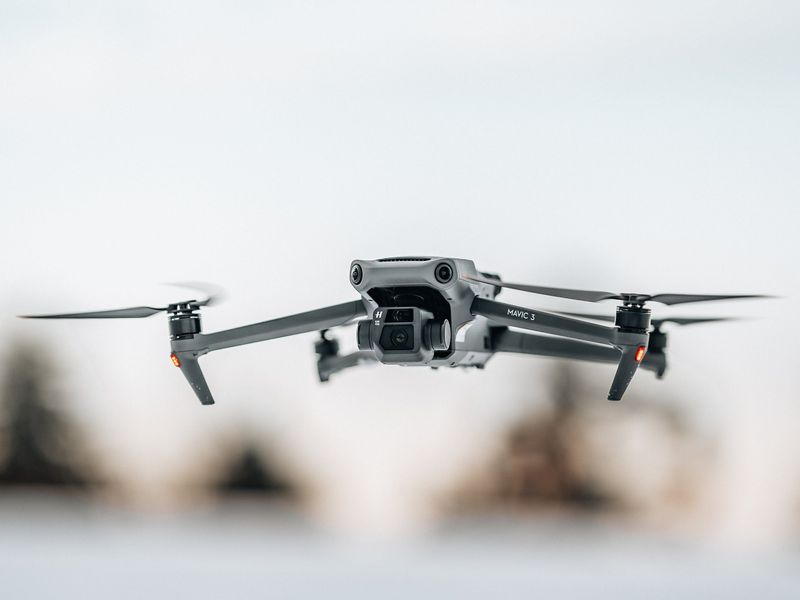Malware & Threats: Spyware Caught Masquerading as Israeli Rocket Alert Applications
In light of the recent Israel-Gaza conflict, threat actors have targeted Israeli rocket alerting applications to spread fear and distribute mobile spyware, according to a report by Cloudflare. With ongoing rocket launches by Hamas into Israel, individuals in Israel rely on several mobile applications to receive timely alerts about incoming airstrikes and seek safety.
Hacktivist Group Targets Rocket Alert Applications
Following the latest escalations in the region, the pro-Palestinian hacktivist group AnonGhost claimed to have targeted various rocket alert applications. The group successfully compromised at least one application by exploiting a vulnerability in the ‘Red Alert: Israel’ application developed by Kobi Snir. As a result, the group was able to intercept requests, expose APIs and servers, and send fake alerts to users, including nuclear bomb messages.
Malicious Website Distributes Spyware
On October 12, a threat actor created a malicious website hosting a modified version of the ‘RedAlert – Rocket Alerts’ mobile application developed by Elad Nava. The website used typosquatting to trick users into downloading the fake application onto their Android devices. While the application was built using the original code, it was also packed with spyware capable of collecting sensitive user information, including contacts, call logs, messages, account details, SIM information, and a list of installed applications.
Collecting User Data and Sending it to a Remote Server
The malicious application was designed to mimic the behavior of the legitimate RedAlert software but also launched a hidden background service that allowed it to collect data from the device. This collected information was then sent to a remote server over HTTP. Although the data is encrypted, the use of RSA encryption with a public key bundled in the app would allow anyone intercepting the packages to decrypt the information.
Immediate Action Needed to Mitigate Risk
Although the website hosting the spyware version of the RedAlert application has been taken offline, all users who may have installed the malicious application are at risk and should take immediate steps to clean up their devices. To determine if they have installed the malicious version, users should check the permissions requested by the software, including access to call logs, contacts, phone, and SMS.
Editorial: Protecting Against Mobile Spyware
This recent incident highlights the ongoing threat of mobile spyware and the need for enhanced security measures to protect users. Mobile spyware poses significant risks to personal privacy, data security, and national security. Its ability to collect various types of sensitive information puts individuals and organizations at risk of identity theft, financial fraud, and espionage. It is essential to address this issue from multiple angles, including technical, legal, and societal considerations.
Technical Measures
Mobile application developers must prioritize security by conducting rigorous code reviews and vulnerability assessments. Implementing secure coding practices and regularly updating applications with security patches can help mitigate the risk of successful attacks. Additionally, users should be educated about the dangers of downloading applications from unofficial sources and encouraged to only install applications from trusted app stores.
Legal Framework
Governments and regulatory bodies play a crucial role in creating a legal framework to combat mobile spyware. Laws should address issues such as unauthorized data collection, surveillance, and the distribution of spyware. It is important to hold threat actors accountable and impose severe penalties for their actions to act as a deterrent.
Societal Awareness and Education
Public awareness campaigns and educational programs can empower individuals to protect themselves against mobile spyware. Users should be educated on safe browsing habits, how to detect potentially malicious applications, and how to secure their devices. Promoting a culture of privacy and digital hygiene can help individuals make informed decisions about their online behavior.
Advice: Protecting Against Mobile Spyware
As individuals, there are steps we can take to protect ourselves against the threat of mobile spyware. Here are some best practices to follow:
1. Download Apps from Trusted Sources
Stick to official app stores like Google Play Store or Apple App Store when downloading applications. These platforms have security measures in place to detect and remove malicious apps. Avoid downloading applications from third-party websites or unofficial sources, as they may contain malware or spyware.
2. Regularly Update Apps and Operating Systems
Keep your mobile applications and operating systems up to date with the latest security patches. Developers often release updates to address vulnerabilities that could be exploited by spyware. Set your device to automatically update applications and operating systems to ensure you have the latest security improvements.
3. Be Cautious of App Permissions
Before installing a new application, review the permissions it requests. Be skeptical of applications that ask for unnecessary access to sensitive data such as contacts, call logs, and SMS. If an application requests permissions that seem excessive or unrelated to its functionality, consider finding an alternative application or contacting the developer for clarification.
4. Use Mobile Security Software
Install a reputable mobile security application on your device. These applications can help detect and block malicious software, including spyware. They often provide additional features like app scanning, web protection, and anti-theft measures, which can enhance your overall mobile security.
5. Stay Informed and Educate Yourself
Stay up to date on the latest security threats and trends by following reputable cybersecurity news sources. Educate yourself on common attack vectors and best practices for staying safe online. By staying informed, you can make informed decisions about your digital security.
Conclusion
The recent incident involving spyware masquerading as Israeli rocket alert applications underscores the need for increased vigilance and strong security measures in the mobile ecosystem. The threat landscape is constantly evolving, and individuals, organizations, and governments must work together to protect against the growing threat of mobile spyware. By adopting technical measures, establishing a legal framework, and promoting societal awareness, we can better safeguard our digital lives and maintain our privacy and security in an increasingly connected world.

<< photo by Antoni Shkraba >>
The image is for illustrative purposes only and does not depict the actual situation.
You might want to read !
- Exploring the Consequences: Equifax Slapped with $13.5 Million Fine for 2017 Data Breach
- The Royal Rebrand: A Satirical Look at the Modern Monarchy
- The Rising Threat: Pro-Russian Hackers Capitalize on WinRAR Vulnerability
- SpyNote Unleashed: Unveiling the Dangers of The Android Trojan
- Signal Debunks Zero-Day Exploit Claims
- Cars are a ‘privacy nightmare on wheels’. Here’s how they get away with collecting and sharing your data
Title: “The Dark Side of Mobility: Unraveling the Privacy Intricacies of Car Data Collection”
- Academics Develop Groundbreaking System to Safeguard Unmanned Robots from Cyber Intrusion
- Critical Infrastructure at Risk: AvosLocker Ransomware Threatens National Security
- National Security Agency Launches AI Security Center: Protecting the Digital Frontier
- Is Meta’s End-to-End Encryption a Threat to National Security?
- The Future of SaaS Security: A Video Journey from 2020 to 2024




